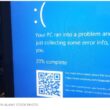Can’t meet the 2013 narrowbanding deadline for two-way radios? Extension waivers are not guaranteed
News of recent FCC narrowband waivers granted to Delta Airlines, New York Transit Authority, the city of St. Louis and others that extended compliance deadlines may prompt a few licensees struggling to satisfy the Jan. 1, 2013, mandate to perhaps assume that the FCC will grant all such waiver requests. That assumption might be a bit risky. The FCC released an advisory template on what needs to be provided when requesting an extension of the narrowbanding deadline, and it would be a good idea to follow the commission’s recommendations as to the information they wish to review to the letter. EWA would not assume that waivers will automatically be granted for large systems, technically complicated systems, or systems that are substantially geographically spaced. What appear to count are real efforts to comply with implementation plans, timelines, funding sources and organizational commitments to get things done. No need to whine about lack of regulatory clarity (we didn’t know), lack of resources (we don’t have any money), or we don’t have enough time (this deadline didn’t exactly sneak up on anyone).
The Enterprise Wireless Alliance (EWA) recently assisted a business enterprise with the submission of its waiver request. It was instructive. First, the business entity possesses a national wireless communications system presence in scope that operates in excess of 50,000 vehicles that support the transportation of over 6 million young Americans daily from within 600 towns and cities across America. Nearly 30,000 mobile devices operational within the 150–470 MHz band need to be either inventoried or replaced in order to transition from wideband to narrowband technology.
Their pending waiver request has provided in detail what had been accomplished to date, and what needs to be accomplished on a month-by-month basis in the future to accommodate the narrowbanding deadline, and illustrated the resources that would be deployed to complete this project. There are few guarantees in Washington, D.C., but we expect this waiver request to be granted given the information provided, presentation and organizational commitment to comply with the FCC’s narrowbanding order.
A review of the FCC waivers granted by the FCC to date share these same attributes. EWA Vice President Ron Franklin spends more and more of his time these days as the deadline approaches answering questions from licensees on narrowbanding matters. He often hears the question, almost a plea from some that “certainly the FCC will extend the deadline?” “Unlikely” is the answer and it is getting very late for waivers. We are down to almost six months left and the FCC likes to review waivers on the merits of each, and will not rubber stamp them.
The Land Mobile Communications Council (LMCC), whose membership includes every single industrial/business and public-safety frequency advisory committees, submitted a letter to the FCC in May 2012 advising that as of Feb. 1, 2013, the coordinators intend to ignore for spectrum evaluation purposes any licensee who is not in compliance with the narrowbanding requirement. Whether this instigates a significant portion of the remaining narrowband holdouts to pull the trigger and ultimately institute measures to bring their systems into compliance, no one knows for certain, but it should. FCC admonishments are one thing as a licensee can recover from one of those, but having licensees legally inhabit what was once your spectrum space wouldn’t be as appealing. Especially since the non-conformist would have no regulatory support in the very real event interference ensures form [ensues from] the influx of legal licensees. Imagine losing past wireless system investments. We all need to stay tuned to this LMCC effort for to become effective, the FCC’s endorsement will be necessary.
On another note, on May 25, 2010, the FCC released a Notice of Proposed Rule Making (NPRM), WT Docket No. 10-112 to establish standard license renewal rules and policies. For site-specific licensees this means you’ll have to certify you’re in compliance with the commission’s rules and policies as initially granted or as granted after a modification and construction notification. Should the commission determine you are not in compliance they would deny your renewal application and your spectrum would be returned to the FCC for reassignment. This is being done not only to clear up the FCC database, but to create the opportunity to provide additional spectrum to those that can put it to optimum use.
Waiting until the mood strikes before implementing system narrowbanding is probably not a prudent business decision at this late date. Crafting a waiver request that must be based on honest facts as well as containing an explanation why after more than 120 months another 6-18 additional months is needed may work for some, perhaps not for others. Don’t tarry too much longer.

















